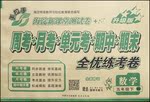题目内容
Winning a marathon is one of the 1 things that an athlete can do. A marathon is 42.2 kilometres of running without a 2 .
The most famous marathon runner was Abebe Bikila. He 3 many hours running in the mountains near his home. Later, when he became 4 of the emperor's (皇帝) palace guards, he 5 on running. He enjoyed it.
Not many people had 6 Bikila when he entered the 1960 summer Olympics in Rome, Italy. 7 two hours and fifteen minutes after the marathon began, he 8 the running and became a famous track star.
Bikila started the race in a 9 pair of running shoes. They soon began to 10 his feet. After only a few kilometres he took them 11 . He was used to running barefoot (赤脚), and that was the 12 in which he ran the 13 of the race!As he entered the stadium two hours later, Bikila was 25 seconds 14 of the next runner. People rose to their feet, 15 . No one that they had ever heard of could run such a race 16 , and Bikila had just run it faster than anyone else in 17 .
Four years later, Abebe Bikila 18 to win a second Olympic marathon. A month before the race he 19 have an operation. This time he ran along the streets of Tokyo. When he entered the stadium at the 20 of the race, he was four minutes ahead of the next runner.
1. A. most smallest B. hardest C. longest D. easier
2. A. breath B. look C. stop D. doubt
3. A. took B. experienced C. put D. spent
4. A. one B. many C. any D. some
5. A. had B. passed C. kept D. held
6. A. thought about B. read C. heard of D. spoke to
7. A. So B. But C. However D. Later
8. A. watched B. practised C. decided D. finished
9. A. new B. nice C. everyday D. proper
10. A. touch B. feel C. hurt D. move
11. A. on B. off C. out D. down
12. A. hour B. day C. time D. way
13. A. other B. left C. distance D. rest
14. A. ahead B. in front C. instead D. because
15. A. laughing B. calling C. cheering D. smiling
16. A. bravely B. barefoot C. on time D. strangely
17. A. earth B. world C. history D. mankind
18. A. liked B. hoped C. began D. waited
19. A. might B. ought to C. was told to D. had to
20. A. point B. end C. time D. beginning
1-5 BCDAC 6-10 CBDAC 11-15 BDDAC 16-20 BCBDB

 手拉手全优练考卷系列答案
手拉手全优练考卷系列答案